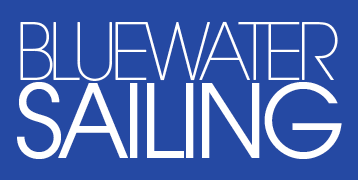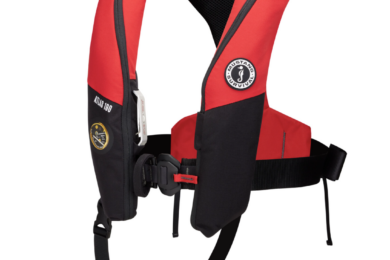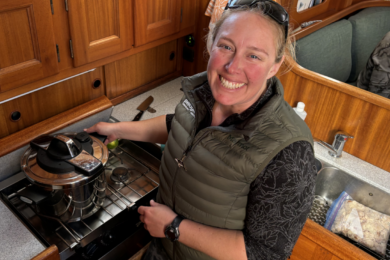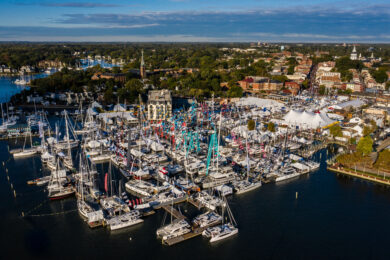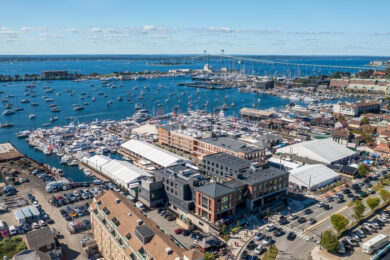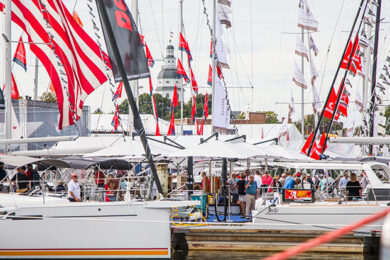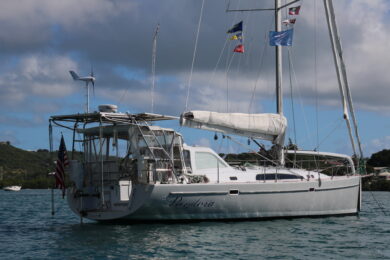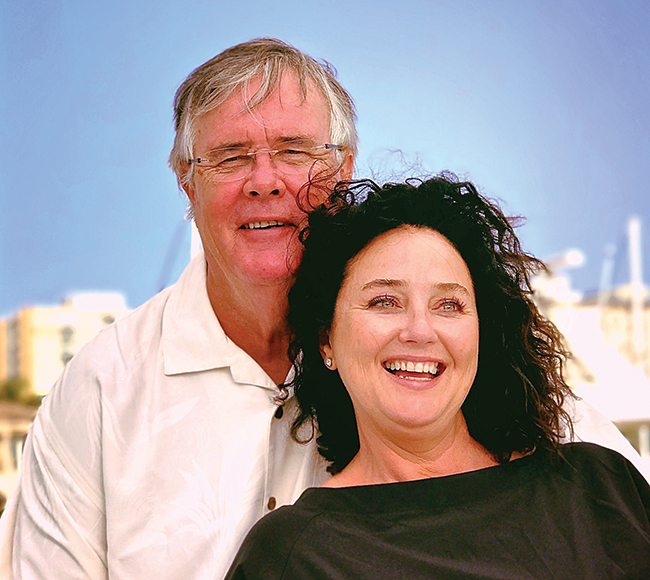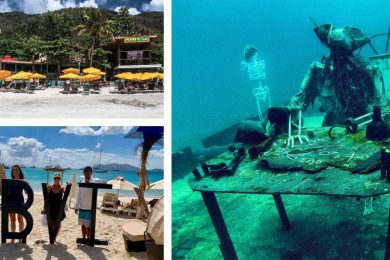Local sailor Todd Tholke is either a Good Samaritan or a high-seas pirate.
On Sept. 30, Tholke was a hero when he went out on the bay in the middle of the night to single-handedly rescue the runaway French catamaran Energy. The America’s Cup World Series boat snapped its mooring line at Piers 30-32 that night and drifted off into the darkness, unmanned and out of control. It fetched up on the rocks of Treasure Island, where it was spotted from the land by Tholke.
At 3:30 a.m., Tholke pulled it off the shore with his 14-foot Boston Whaler. He then towed it to the Treasure Isle Marina and handed it back to the racing team.
The French were so grateful they offered to give Tholke a ride on the bay.
But Friday, as the French prepared for the regatta, Tholke’s representatives presented them with a warrant from U.S. District Court to “arrest” the boat and take it into custody as soon as Sunday’s races were over.
Based on a law from the 1800s, Tholke’s attorney John Edgcomb said in court documents, the rescue had established “a valid maritime salvage claim” and Tholke was entitled to “a liberal maritime salvage award.” Edgcomb said the amount was up to the court, but something “in excess of $200,000.”
The French officially said in a statement that they were “surprised and disappointed,” but it would be more accurate to say they were flabbergasted.
It is hard to blame them. After all, the boat only floated a mile. It was only free for a few hours. And to be honest, if Tholke had just made a phone call, they would rather have picked it up themselves.
It is tempting to speculate that Tholke figured his ship had literally come in. He quietly nabbed the boat, claimed the Coast Guard declined to pull it off the rocks, and went straight to legal counsel.
Ridiculous, says Edgcomb, who said Tholke would not be available for comment.
“Todd wasn’t doing this for the money,” he said. “He thought he was doing something heroic that people would appreciate.”
Bases covered
Maybe so, but the Tholke camp certainly seemed to cover all the bases. The account of Tholke’s rescue in the court filing reads like the script for “Captains Courageous.” His boat, he says, “took on water, its motor cut out intermittently and smoked from overheating, and was nearly capsized on repeated occasions.”
The narrative makes more sense when you realize that two of the six factors of the Blackwall law, which has been the authority on salvage law since 1869, are “labor expended” and “risk incurred.”
I am not saying that Tholke didn’t have challenges recovering the catamaran, but in the original news story on the America’s Cup website about the rescue, Regatta Director Iain Murray said, “Thankfully, it was a very calm night.”
Adria Notari, an admiralty and maritime attorney from the nationally known firm of Houck Anderson in Miami, says it is typical for salvage claimers to emphasize the danger.
“I sometimes say, ‘You’re making this sound like “Moby-Dick,” when it was more like “Three Men in a Tub,” ‘ ” she said.
Meanwhile, the issue of whether the Coast Guard should have responded immediately is up to interpretation. Edgcomb says – and his premise is backed up by news stories – that the Coast Guard is not responding to as many minor incidents as it used to. If there’s no imminent danger or risk of pollution, a boat may not be sent out immediately.
“Todd called the Coast Guard, he answered the questions, and they followed the appropriate procedure,” Edgcomb said. “They ended up meeting him when he came around the south point of Yerba Buena Island.”
But Noah Hagey, attorney for Team Energy, produced an e-mail sent at 8:52 a.m. from Lt. Shawn Whiteside of the Coast Guard that says they were contacted at 4:05 a.m., over half an hour after Tholke says he started the recovery. If there was an earlier phone call, Whiteside doesn’t mention it.
Sailing toward court
Overall, it sounds as if this is headed for a protracted court battle. Both attorneys say there’s been virtually no progress in informal negotiations, and Hagey says his side is likely to file a motion this week to have the “arrest” of the boat set aside.
The irony is that for all the perceptions of the America’s Cup participants as fabulously wealthy, the French team has been experiencing financial problems. In fact, in August, citing a limited budget, it announced that it would not build a 72-foot boat to compete in the 2013 America’s Cup.
Although Edgcomb is basing his financial claim on an estimated value of $1 million for the runaway catamaran, Team Energy says the boat is 5 years old, outdated and worth far less. They suggest that if Tholke is due a payment, it should be more in the range of $25,000. That’s a $175,000 difference of opinion.
So that’s where things stand. The Energy boat is confined to a cargo container on Piers 30-32, the two sides are headed to court, and somewhere, lost in the confusion, is the memory of an awesome sailing event on the San Francisco Bay.
But in an odd way, San Francisco has lived up to its reputation. It’s a postcard-perfect spot, a blue bay surrounded by colorful hillsides, where big events run like clockwork and leave the residents pleased, but unruffled.
And we’re always ready to file a lawsuit.
